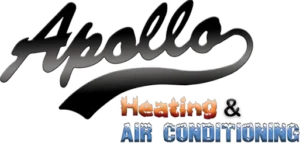One of the most significant benefits of modern living is comfort in nearly every aspect of our lives. Many factors contribute to your home’s convenience and comfort; however, a reliable HVAC (heating, ventilation, and air conditioning) is paramount in any season. HVAC systems are a cornerstone of your home’s air quality and temperature control. At Apollo Heating and Air Conditioning, we understand the critical role that your HVAC system plays in maintaining your optimal indoor environment. As a certified Carrier, Mitsubishi, and Energy Star Dealer, we have decades of experience in the heating and cooling industry. Our team has won several awards and recognitions, including the Carrier President’s Award. As local leaders in HVAC systems, our professional HVAC installation and HVAC maintenance ensure that our clients’ system runs efficiently and effectively, providing the highest comfort and air quality standards. That’s why we are taking today to guide you through this comprehensive guide to HVAC systems!
Why It Is Vital to Understand Your HVAC System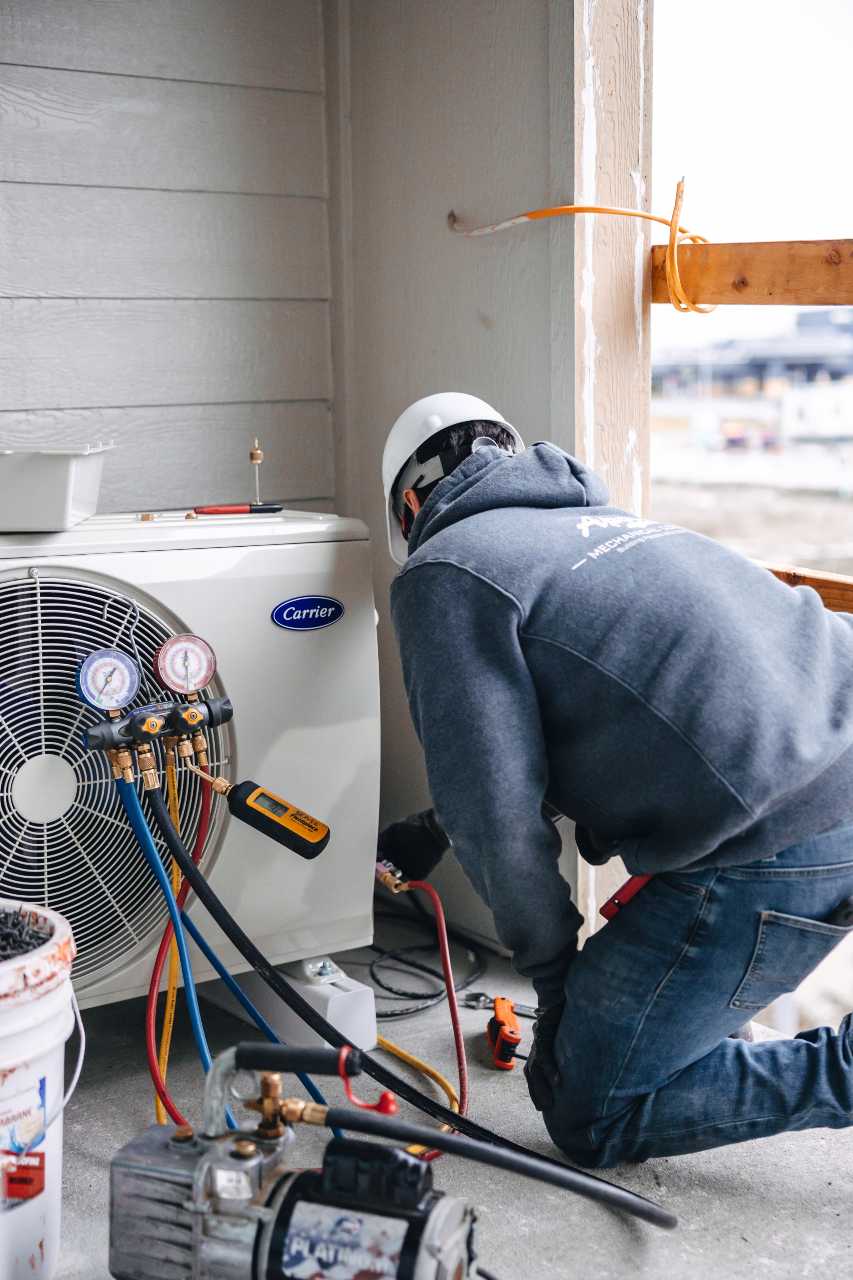
Your HVAC setup is a silent champion in your home, working tirelessly behind the scenes. Whether you need to keep away the thick humidity, the heat of summer, and the chill of winter, or you want to keep the air fresh, healthy, and allergen-free, a high-quality HVAC system is a must for homeowners. It is also one of the most significant investments homeowners make – replacing your HVAC can be pricey!
Understanding the components and functions of your HVAC system is essential to selecting the right system for your home. When you’re looking for a new HVAC, you must understand the components and functions of each system to choose the right one for your home. You must also understand your system’s prospective installation process and ongoing maintenance to remain in tip-top shape.
Part 1: Understanding HVAC Systems
What is an HVAC System?
An HVAC is a sophisticated system of components designed to regulate indoor spaces’ temperature, humidity, and air quality. HVACs have three main functions – heating, ventilation, and air conditioning.
The heating component of an HVAC system generates warmth, maintaining comfortable indoor temperatures during colder months. This part of the system usually includes a furnace, heat pump, or boiler.
The ventilation component of the HVAC ensures air circulates appropriately throughout your home. It removes stale air, odors, and pollutants, replenishes the oxygen to maintain indoor air quality, and prevents the buildup of harmful contaminants and allergens.
The air conditioning system cools indoor spaces by removing heat and moisture, maintaining comfortable indoor environments during hot weather. It uses refrigerants to transfer heat from indoor spaces to the outdoors and cool air from outside.
Types of HVAC Systems
Three main types of HVAC systems are available, each with unique features and best applications. Understanding the differences between these systems is crucial in selecting the one that best suits your home’s layout, size, and specific heating and cooling needs.
1. Central HVAC Systems
Central HVAC is a traditional heating and cooling system. Central air uses ductwork to distribute conditioned air throughout the home, which is ideal for larger properties or homes with existing duct infrastructure in the walls, floors, and ceilings. Central systems are versatile and can accommodate various heating and cooling sources, such as a furnace and air conditioner paired to heat and cool, but they also have high upfront costs.
2. Ductless Mini-Split Systems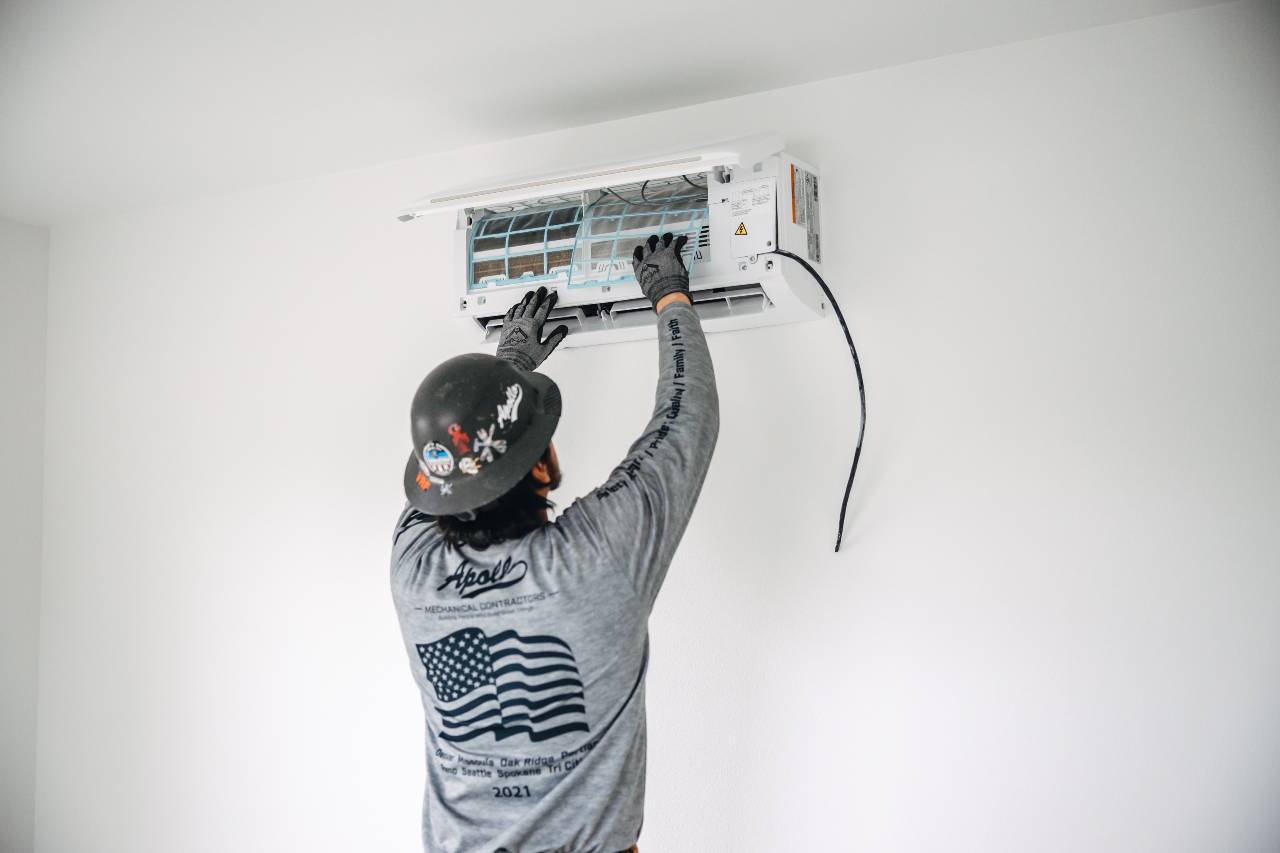
Rising in popularity every year, ductless HVAC systems are a simple, easy choice for HVAC. As the name suggests, these systems are standalone heating and cooling devices without ductwork, offering flexibility in installation and zoning. They are perfect for homes without existing ductwork, apartments without HVAC, and to supplement existing HVAC systems. Mini-splits consist of one or more indoor air handling units connected to an outdoor compressor unit, often high on a wall or near a window.
3. Heat Pumps
Heat pumps provide both heating and cooling by transferring heat between indoor and outdoor environments. They are an energy-efficient heating and cooling solution, offering temperature control in one unit rather than purchasing a separate furnace and AC unit. However, they are best suited for moderate climates and are a costly initial investment despite providing long-term energy savings.
Part 2: Choosing the Right HVAC System for Your Home
Assessing Your Needs
An HVAC system is one of the most significant investments homeowners make – and it is crucial you make the right choice. Before selecting a new system or unit, assess your family and home’s needs. Factors such as your home’s size and square footage, energy needs, insulation levels, and regional climate patterns influence the type and size of the optimal HVAC system for your space.
Key Considerations in Selecting an HVAC System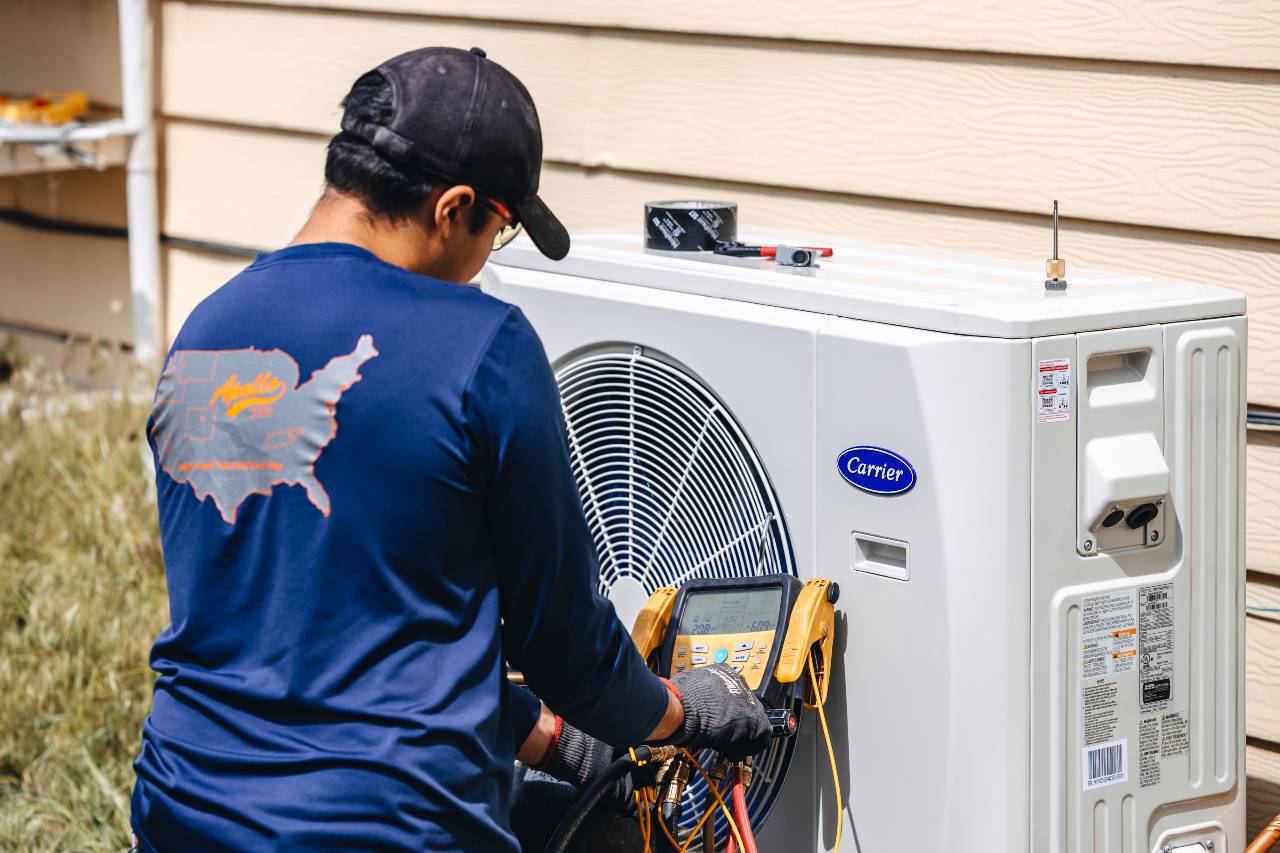
When shopping for an HVAC system, there are several vital factors you should consider:
1. Energy Efficiency Ratings
Investing in an energy-efficient HVAC unit is not only good for the environment, but it’s also good for your pocketbook. Look for systems with high energy efficiency ratios (EER) and seasonal energy efficiency ratio (SEER) ratings to minimize energy consumption and reduce utility bills. These systems save money on operating costs and can also be eligible for energy credits on your federal and state tax returns – plus, you’re helping the environment! Energy-efficient systems are a win-win for the planet and homeowners, so consider purchasing an Energy Star-rated HVAC system.
2. The System Size
Your HVAC system must be appropriately sized for your home to achieve your desired results and optimize performance and energy efficiency. An undersized system will struggle to maintain comfortable temperatures, always leaving you too hot or too cold, keeping some rooms or floors stuffy and more humid while others are frigid. Oversized systems will cycle on and off frequently as the heating and cooling needs are met too quickly, leading to inefficiencies, premature wear, and higher utility costs.
3. New Technological Features
These days, smart technology can be integrated into almost every aspect of our lives, including your HVAC unit! When shopping around, consider potential HVAC features such as programmable thermostats, zoning systems, and air purification technologies. Systems that integrate these technologies can enhance comfort and indoor air quality while improving system performance, increasing convenience and energy efficiency, and providing additional comfort benefits.
Expert Advice: Selecting Your System
If you’re in the market for a new HVAC system, consider consulting with a professional heating and cooling company. At Apollo Heating and Air Conditioning, our expert technicians provide personalized advice to each prospective shopper. Our team of professionals accounts for factors such as home size, budget, climate conditions, your home’s unique characteristics, your needs and long-term objectives, and energy efficiency goals to recommend an optimal, tailored solution for each customer. Any professional HVAC company wants to ensure you invest in a system that meets your expectations and provides lasting comfort for years to come.
Part 3: Installing Your HVAC System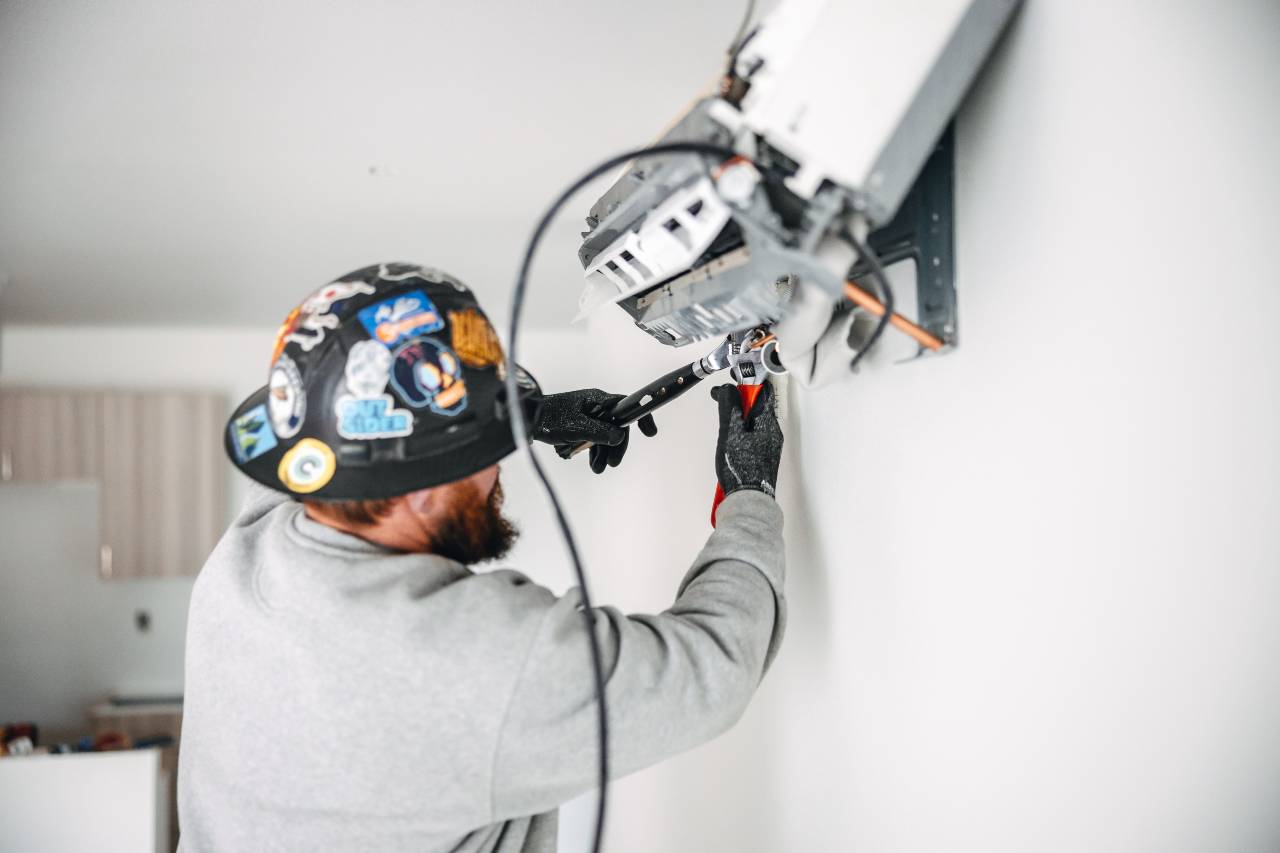
The Professional Installation Process
Professional HVAC installation is essential to ensure your system’s efficiency, safety, and longevity. An experienced HVAC technician follows industry best practices to install your system with precision and care, which minimizes the risk of installation errors and ensures optimal performance from the start. At Apollo Heating and Cooling, our HVAC pros adhere to manufacturer specifications and local building codes, ensuring your system operates safely and efficiently.
Preparing for Installation
Before your professional HVAC installation, you can take specific steps to prepare your home for the process. You must clear access pathways, remove obstacles for the technicians to move freely, and ensure adequate ventilation in the installation area. Our team works diligently to coordinate the installation schedule and will address any concerns or questions you have about the process.
Part 4: Maintaining Your HVAC System
Routine Maintenance and Why It Matters
Every system in your life – your car, garage doors, roof, water heater, and beyond – requires regular maintenance to continue running at optimal efficiency, and your HVAC is no exception. HVAC maintenance is essential to guarantee your system’s energy efficiency and longevity. At Apollo, our maintenance services include cleaning filters, inspecting components for wear and tear, and lubricating moving parts. Routine maintenance allows us to get into your system and address minor issues before they escalate into more significant problems. This helps prevent costly repairs and breakdowns in the future and ensures that your system operates safely and efficiently. Routine HVAC maintenance reduces the risk of unexpected failures and ensures consistent comfort throughout the year.
DIY Maintenance Tips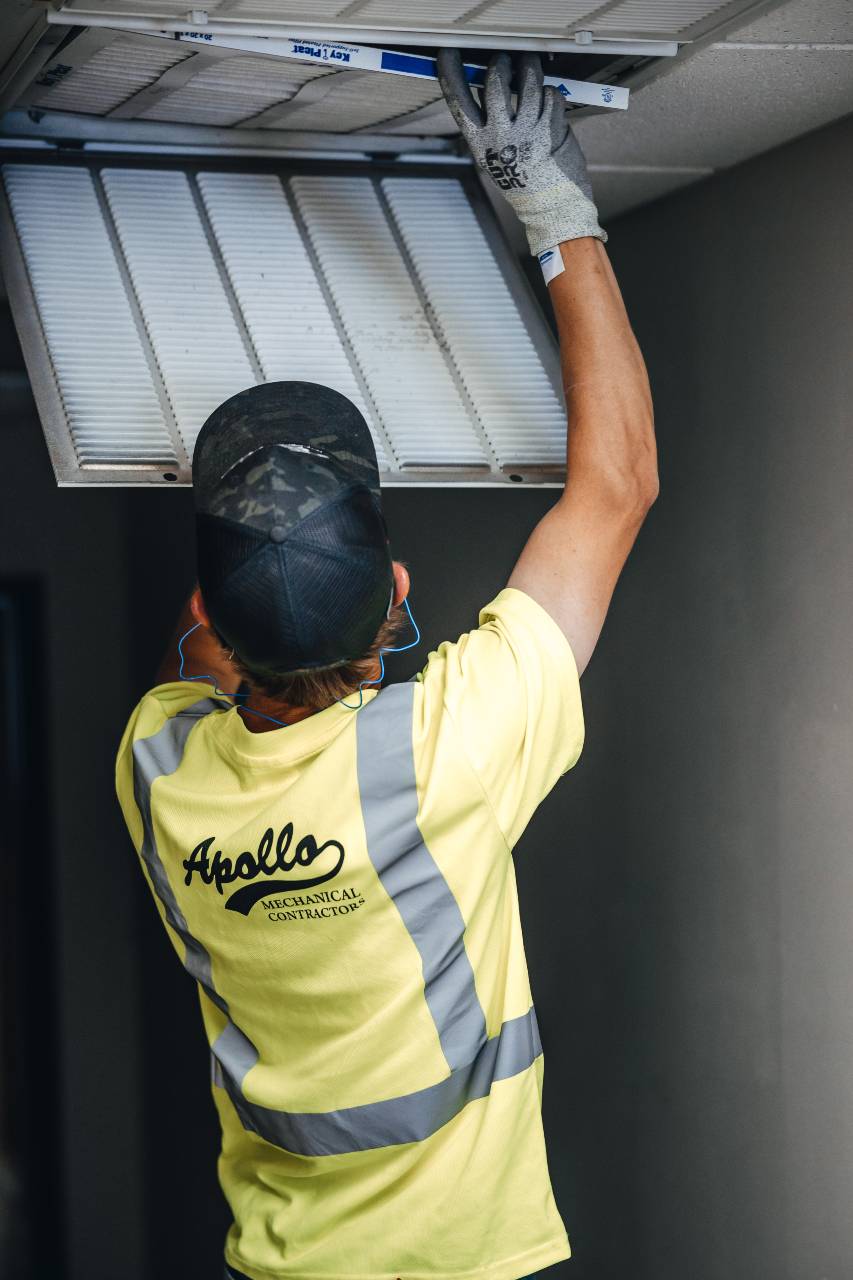
While professional, routine HVAC maintenance is a must, there are still several DIY maintenance tasks that you can perform to keep your system running smoothly.
1. Check Air Filters
First, you must regularly check and replace your air filters. Clean air filters ensure proper airflow and indoor air quality. Dirty filters can restrict airflow and strain the system, leading to reduced efficiency and increased energy consumption.
2. Clean Drip Pans
Another DIY maintenance task is cleaning your drip pan. A clean drip pan prevents mold and algae growth, which can obstruct drainage and cause water damage. It can also distribute mold and other bacteria throughout your home. Regular drip plan cleaning helps maintain proper drainage and prevents water-related issues from affecting your HVAC system.
3. Condenser Coil Cleaning
Your outdoor condenser coils are vital to keeping your HVAC unit cooling efficiently. Clean these coils regularly and ensure they are debris-free, such as leaves, twigs, and other outdoor materials. This allows them to maintain optimal heat transfer efficiency – dirty coils can reduce system efficiency and increase energy consumption, leading to higher operating costs and utility bills.
When to Call the Professionals
While DIY maintenance can address minor issues, some tasks are best for professionals. If you hear unusual noises, have uneven heating or cooling, or have increased energy bills, it is best to call in a pro for your HVAC maintenance.
Part 5: Advanced HVAC Considerations
Energy Efficiency and Your HVAC
Energy efficiency is one of the most important considerations when purchasing a new HVAC system. Energy efficiency is essential for environmental sustainability and cost savings on your electricity bills for years to come! Energy-efficient HVAC systems help homeowners reduce their carbon footprint and increase their comfort through features such as variable-speed motors, high-efficiency filters, and programmable thermostats. These energy-efficient features can significantly reduce energy consumption and operating costs while maintaining optimal comfort.
Smart Homes and HVAC Integration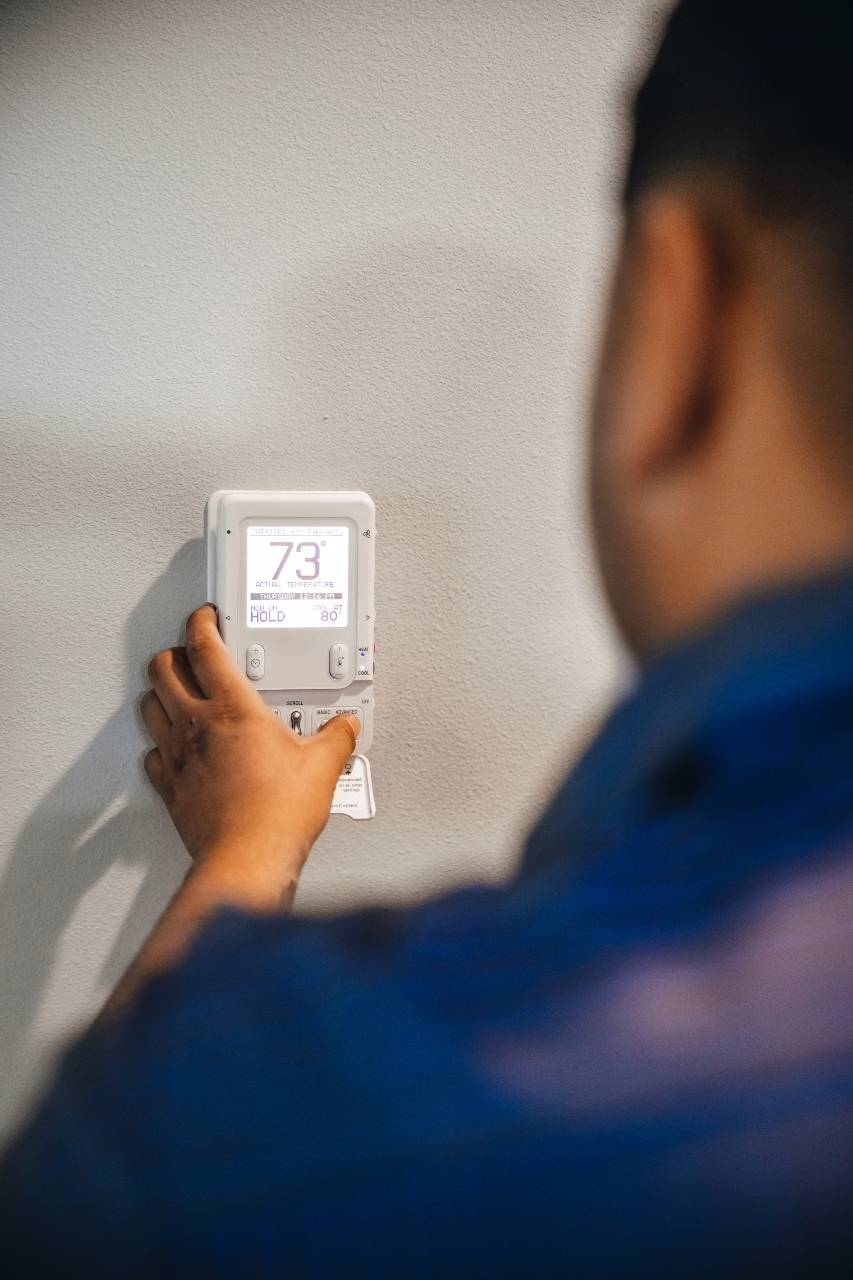
Technology is integrated into every aspect of our lives, and HVAC is no different! Smart thermostats, zoning systems, and remote access capabilities revolutionize home comfort and convenience. Smart HVAC systems can learn user preferences and adjust settings automatically based on occupancy, weather conditions, and zoning. Smart thermostats can provide real-time energy usage data and allow you to make more informed decisions about your energy consumption. Integrating smart technologies into your HVAC system can help you enjoy greater comfort, convenience, and energy savings while reducing your environmental footprint.
Part 6: The Future of HVAC Technology
Over the last few decades, HVAC technology has evolved dramatically, and we can only expect this evolution to continue in the future. With the introduction of new technologies and innovations to enhance comfort, efficiency, and sustainability, the future of this industry and HVAC technologies is bright. Advances in air purification and the integration of renewable energy sources are close on the horizon.
The future of HVAC technology holds exciting possibilities for homeowners seeking to improve their indoor environments and reduce their eco-footprint. Emerging trends such as solar-powered HVAC systems, geothermal heating and cooling, and advanced energy storage solutions promise to revolutionize how we heat, cool, and ventilate our homes. By staying informed about the latest developments in HVAC technology, homeowners can make informed decisions about upgrading their systems to meet future needs and priorities.
How Apollo Heating and Cooling Can Help
Are you in the market for a new HVAC system? Apollo Heating and Cooling is here to help! At Apollo, we know that selecting, installing, and maintaining your HVAC is a significant investment in your home’s comfort and air quality. Our experienced team is committed to providing you with a reliable, efficient, and technologically advanced HVAC solution tailored to your specific needs. Contact us today to find your perfect HVAC system and ensure your home’s comfort for years to come!
